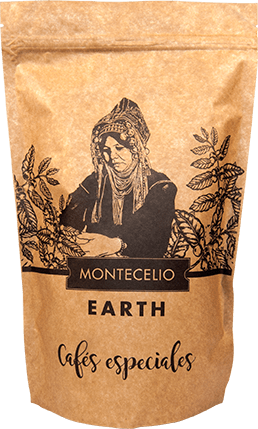
El Salvador Los Pirineos
The farm “Los Pirineos” is located at the top of the Tecapa volcano, at an altitude of 1480 meters. This volcano is part of a volcanic mountain range in the department of Usulután. The estate is named after the similarity of these mountains to the Pyrenees, which separate Spain and France. This farm started growing coffee in 1890. Today, Pyrenean coffee is internationally recognized by buyers and tasters as one of the best coffees in the country. Most of the production is sold in the gourmet market of Asia.
Source: El Salvador
Region: Usulután
Farm: Los Pirineos
Altitude: 1.480 metres
Variety :Bourbon Elite
Process: Natural
Score: 85,75
Tasting
Notes of wine, red fruit, caramel and mango. Intense, good acidity and excellent body.